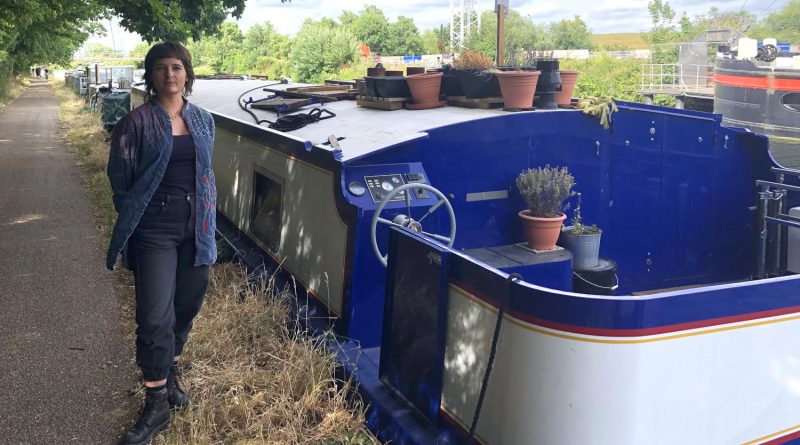Artist Milou Stella: on the influence of psychology and queer theory on their quest to blur the rigid lines of categorisation
We speak to Milou Stella, an interdisciplinary queer artist, on how art has helped them overcome difficult personal challenges.
“I love doing projects where you take something from your locality, or the history around you, and explore it in collaborative or participatory ways,” Milou Stella tells me, as their Siamese cat Brahmino (full name Brahmino Papa Champagne) climbs across their shoulders.
Milou has an open and fluid approach to gender, using both she and they pronouns, and are happy for people to use both.
They speak with a gentle Italian accent, softened with years of living in London. Originally from Genova and later Milan, they always wanted to be an artist; apart from a period of time when they were about 12 or 13, when they briefly decided that they wanted to be a pianist.
They continue talking passionately about a heritage project centred on masculinity that they will be working on, which looks at the life of Jewish boxing pioneer, Daniel Mendoza.
Mendoza was a resident of Paradise Row in Bethnal Green in the late 18th and early 19th centuries. He was a complex figure, Milou tells me; as a working class migrant who also spent time in jail. ‘It’s great to find these interesting characters in the community, and learn new ways to celebrate them.’
The project is led by St Margaret’s House on Old Ford Road, a community space which has been central to the evolution of Milou’s work. As well as local heritage projects such as the one on Mendoza, they have also completed an artist residency at St Margaret’s House, and led many workshops there, such as ‘embroidery for well being’.
It is a bright but cloudy Wednesday afternoon and speckles of sunlight poke their way in through the boat windows, onto the kitchen table where we are sat. Milou and their partner have lived on a boat, travelling up and down the canals of east London, for the last seven years. As well as Brahmino, they also share the space with a gorgeous German/ Belgian Shepherd cross, named Nirvana.
Their partner is also an artist, specialising in music and sound, so they collaborate together on animation projects. Do they enjoy working together? “It’s amazing!” Milou says. “We’re both friends and we can retreat into a very creative bubble.”
After realising they wouldn’t be able to afford London rents as well as a studio, the boat became both their workshop and home; various pieces of work adorn the walls of their spacious yet intimate boat.
There is a strong theme of hybridity and fluidity to their work; many of the figures depicted in their paintings are part machine, part human, part fantastical being. For example, a recurring character in their art is a curious bird-plane amalgam.
Influenced by queer methodologies, Milou has been on a quest to blur the margins of fixed categories which, they say, ‘do not serve many people throughout society.’ Their research looks at queer theory of identity in order to express fluidity and subversion in their art.
One project they did with St Margaret’s House and the theatre company Heads Bodies Legs, was a year long arts and heritage project called ‘Molly’s Masquerade’. ‘Molly’ or ‘Moll’ was a slang term for a gay man, and for a lower class woman who would sell sex in the 18th century.
The collaborative project explored the queer communities of 18th century London, some of which were based in Bethnal Green and Whitechapel. It was supported by the arts council and Heritage Lottery Fund. The project looked at how Molly houses allowed queer people (although wouldn’t have defined themselves as queer) to find community, family and connection.
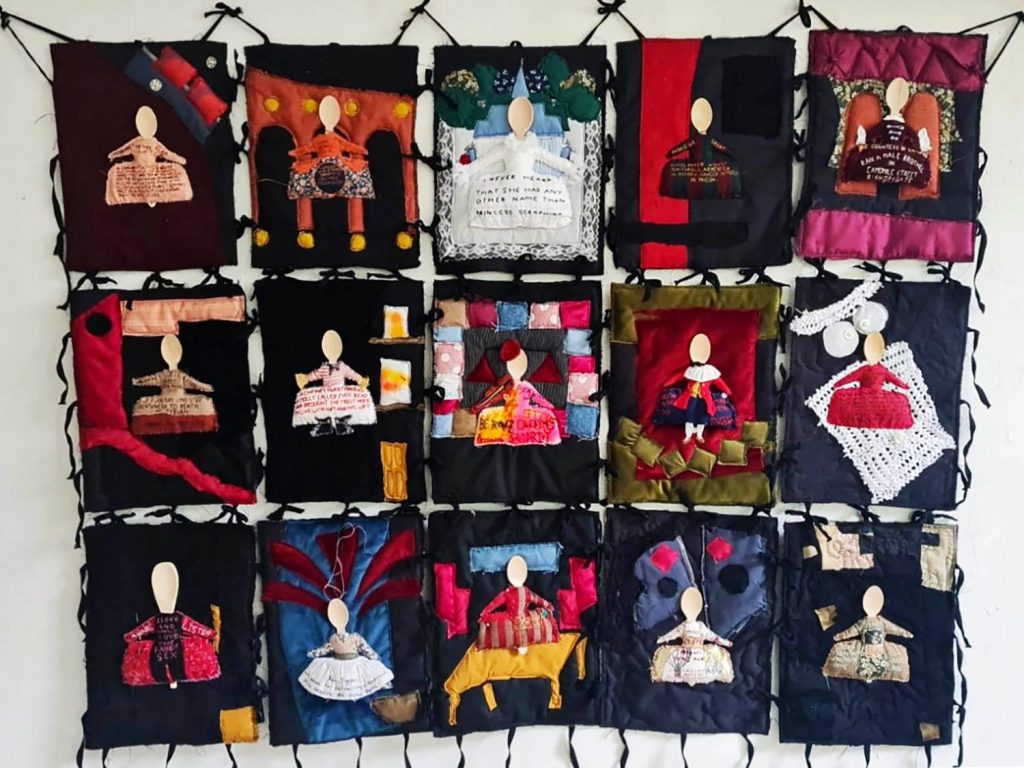
“The purpose of the project was to create a subversion of the sadness the records showed,” Milou tells me. “To celebrate our queer ancestors: their resilience, way of living and courage.”
A love of psychology, particularly the works of Freud and Jung, has also inspired them. This helped an interest in surrealism to flourish. “I became interested in the subconscious, in desire, in relationships, which has helped me understand many things: particularly my own mental health and the way my family works,” Milou tells me.
At this, Nirvana gives a soft growl followed by a sharp bark. The cat, with its electric blue eyes, remains unphased, and continues to slither around Milou’s shoulders.
The theme of mental health is one which crops up a lot in our conversation; Milou talks openly about it; about the way their mind works, and in particular, their recent diagnosis of ADHD.
“I constantly wondered why my brain always wanted the opposite of the thing that I set out to do,” they tell me. “But so many things make sense now!”. I ask whether ADHD makes being a freelancer difficult, but they tell me that although it is precarious, it suits them more than having to sit in an office and concentrate on one thing for hours on end.
Milou is accomplished at putting a positive spin on things. They tell me how the good part of ADHD is hyperfocus, which allows them to work for 10 hours at a time. Although it allows them to get completely lost in their work, it can be unhealthy, “Because I might forget to eat,” they say light-heartedly.
Their art has helped them create meaning out of traumatic experiences. Their ongoing project, ‘The Elusive Good Egg’, which materialises their interest in reproductive rights and technologies, is heavily based on their personal experiences with IVF.
“The journey of going through IVF has had a huge impact on everything,” Milou informs me.The ‘Elusive Good Egg’ shrewdly explores IVF by looking at the discriminatory practices of infertility treatments, the meaning of what constitutes a family, as well as expressing the anguish of going through such an emotionally turbulent journey.
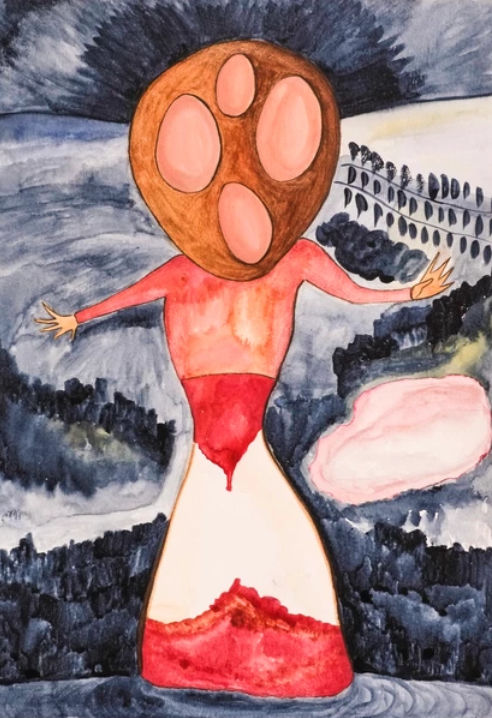
The process has also made them think objectively about what constitutes a good egg.
There’s a lot of pressure on women, they say; which stems from an obsession with eggs and egg quality. These narratives come with a lot of trauma, particularly for women who struggle to become pregnant.
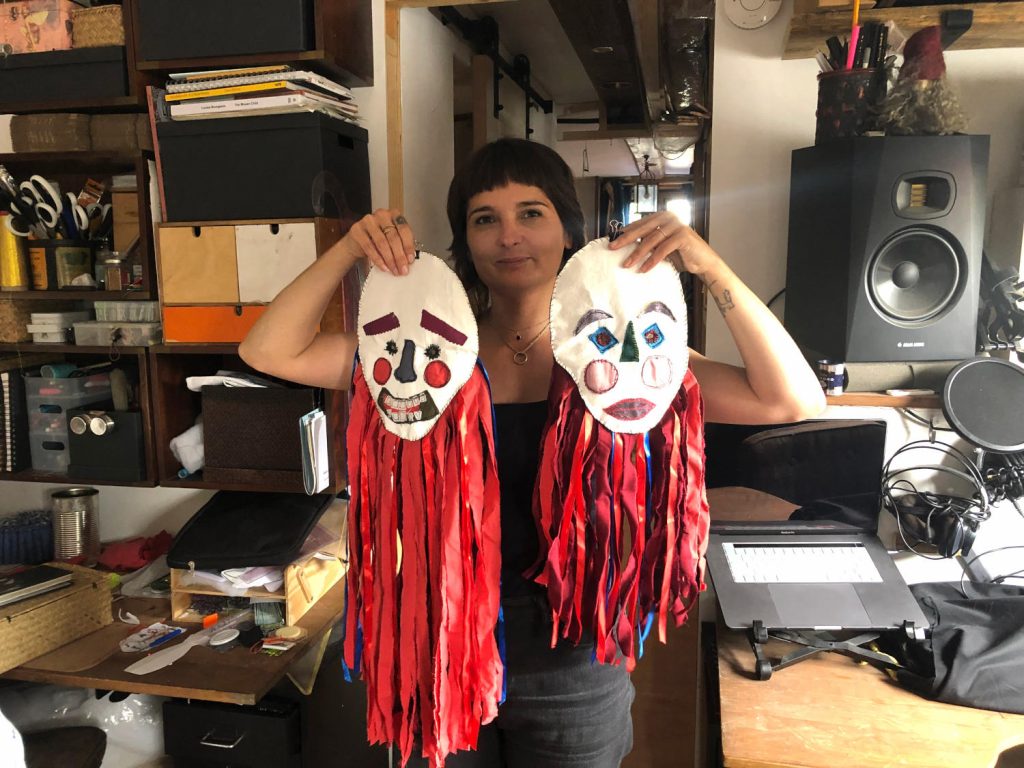
Although the last four years of trying to get pregnant have been very difficult for Milou, their ability to find value in these experiences has as a result produced a series of compelling mixed media artworks, as well as a support group for other people going through IVF.
They tell me their brain is very visual: divided between a highly intellectual, analytical and studious side and an intuitive, emotional and spontaneous side. This is clearly evident throughout their work: surrealist, playful characters are the end product of a lot of theoretical and socio-cultural research.
Milou is accomplished at connecting to their past experiences as well as confronting their present challenges when creating art; it is this personal reflection which makes their work both vulnerable and authentic.
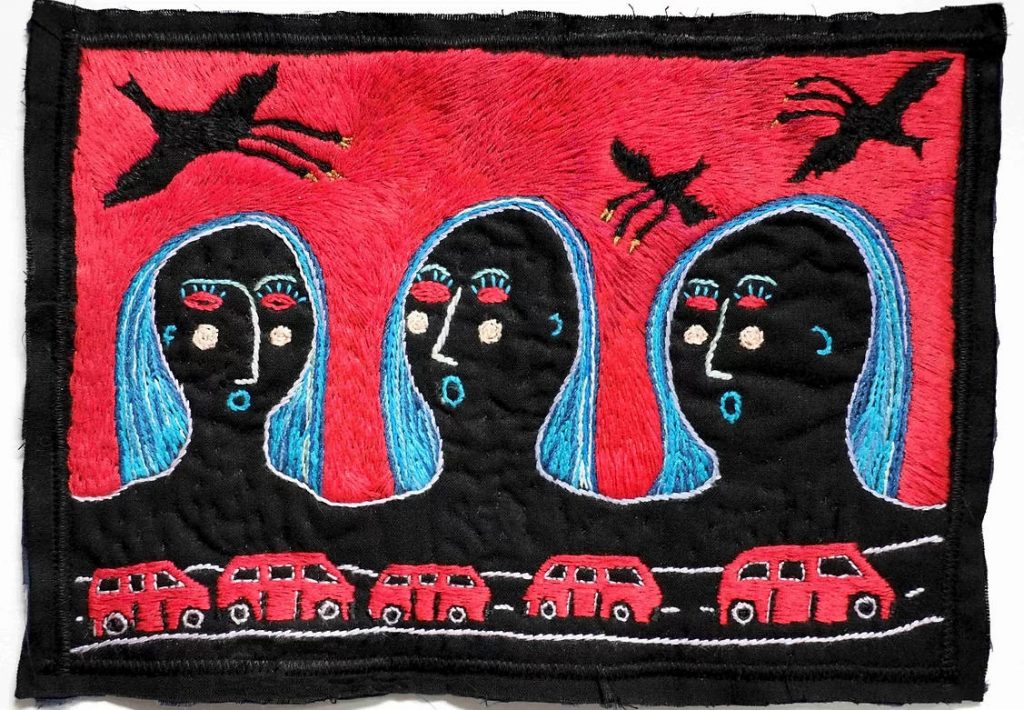
You can find out more about or buy Milou Stella’s work on their website or through their Instagram.
If you enjoyed reading this you might like our piece on Eleanor Crow.

